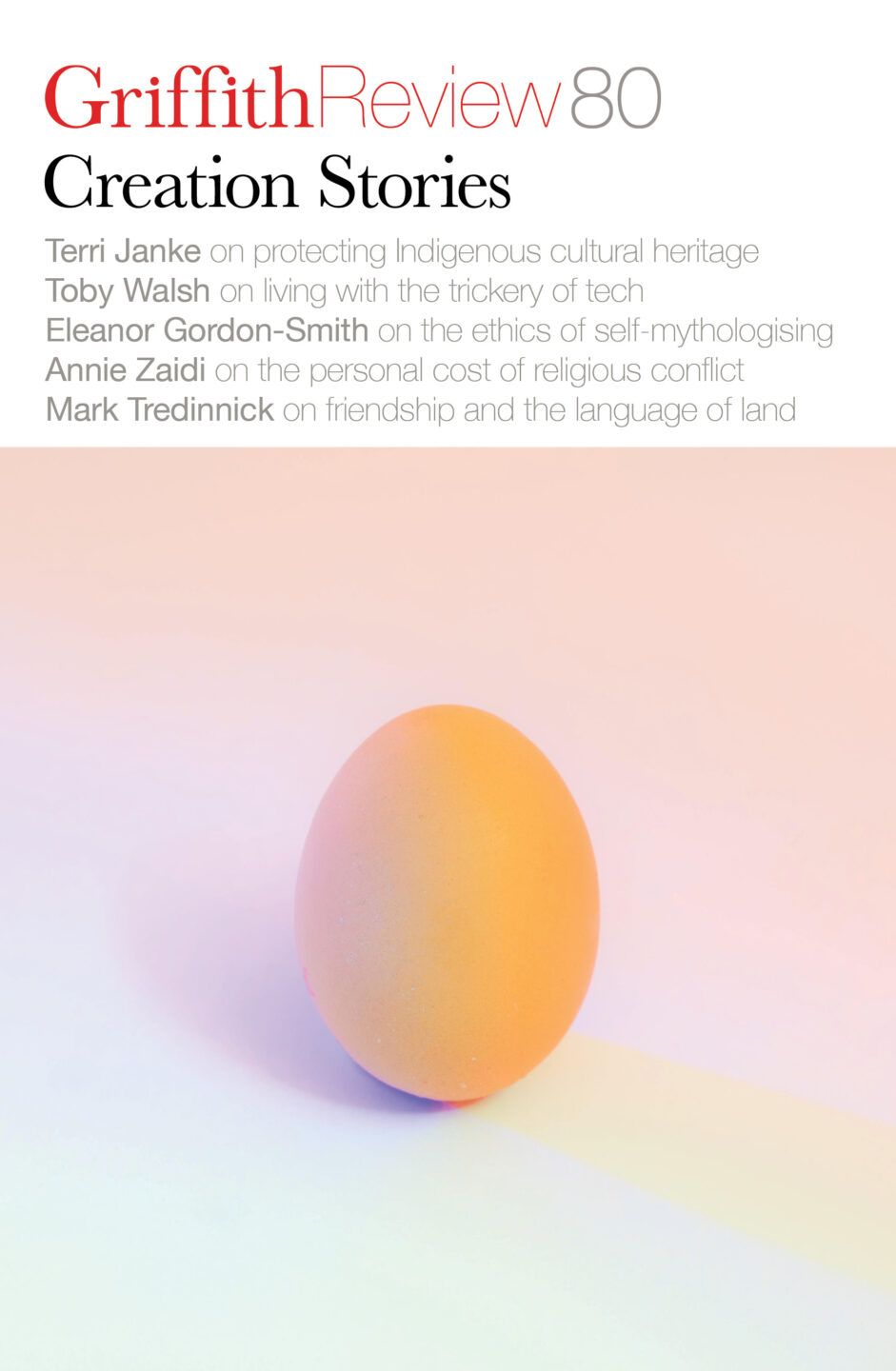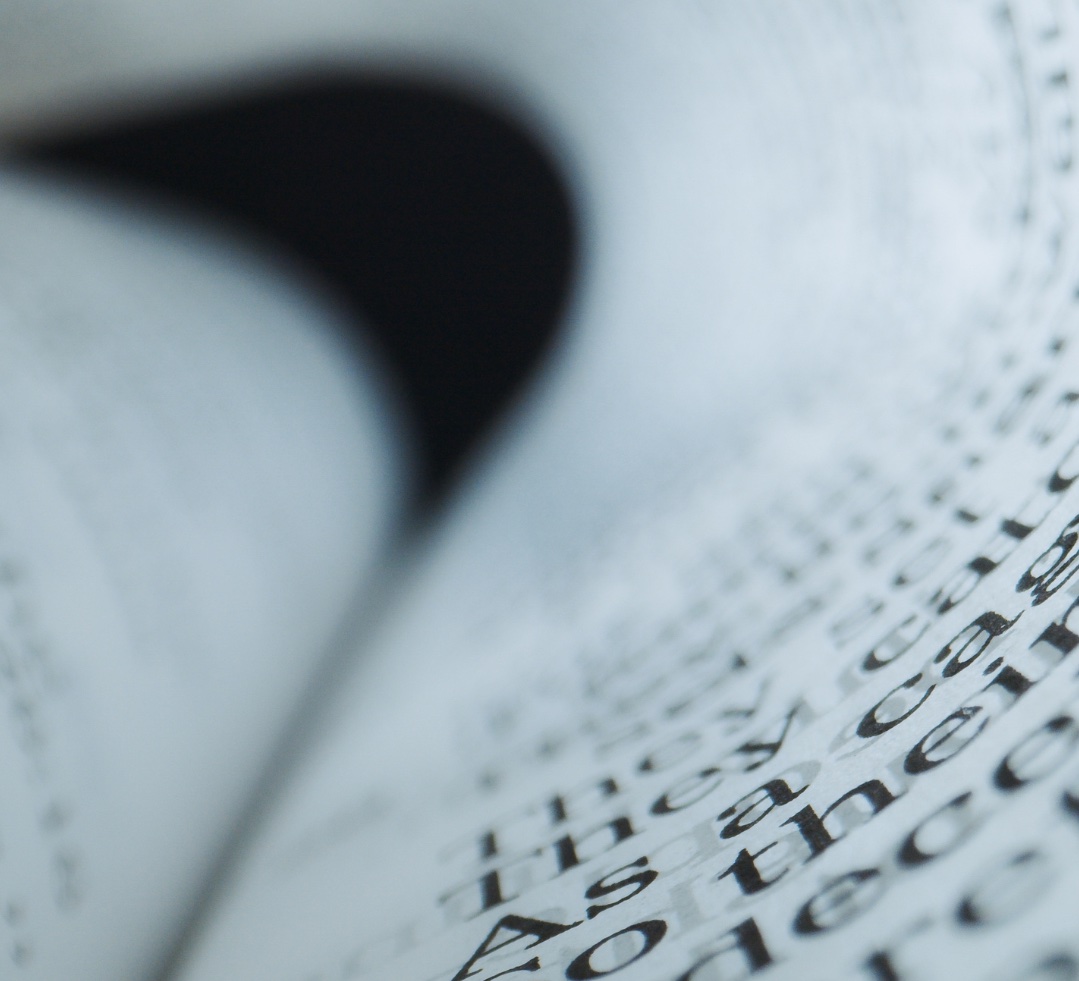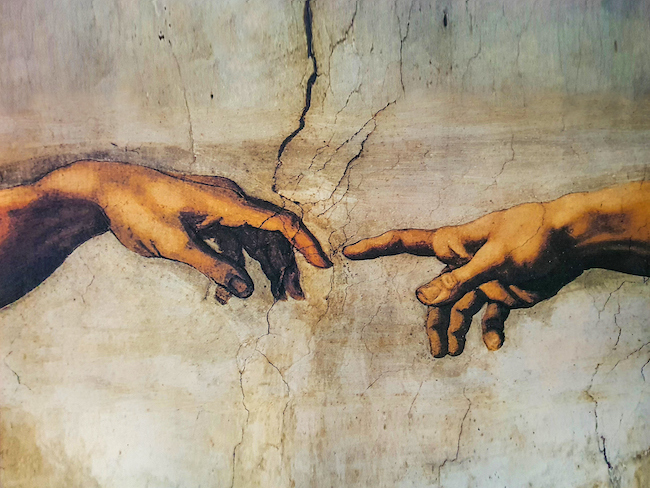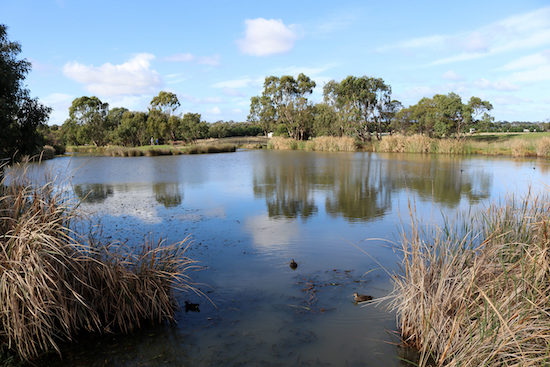Featured in

- Published 20230502
- ISBN: 978-1-922212-83-2
- Extent: 264pp
- Paperback (234 x 153mm), eBook

Already a subscriber? Sign in here
If you are an educator or student wishing to access content for study purposes please contact us at griffithreview@griffith.edu.au
Share article
More from author

Is poetry disabled?
In poetry’s capacity to self-define, to reject conventionality, to be in a constant state of flux and to hold the contradictory together in its granularity, it subverts formal systems of designation time and again. Poetry then avoids simple diagnosis, at least pre-emptively.
More from this edition

Colour theory
FictionI carried that knife with me everywhere, clipped onto the waistband of my pants, the metal cold against my hip, but when the time came to use it, I forgot it was there. For days afterwards, I waited for the police to turn up on the doorstop. I kept refreshing the local news, typed variations of ‘assault’ and ‘eye-gouge’ and ‘Brisbane’ into Google. The most recent result was from the previous April: a glassing incident on a man in his sixties in a Spring Hill pub that had nothing to do with me.

Let there be light
IntroductionWhether they’re personal, cultural or religious, these are the stories that offer us ways of orienting ourselves amid the sheer chaos and confusion of being alive – particularly today, as humanity’s existential and environmental crises continue to mount.

Into the swamp
Non-fictionSome versions of environmentalism understandably encourage an almost Swiftian misanthropy, with the ecological collapse framed as the inevitable response of nature to a pestiferous humanity, the only species that, by its very existence, destroys all that it touches. But maybe, just maybe, it doesn’t have to be that way.